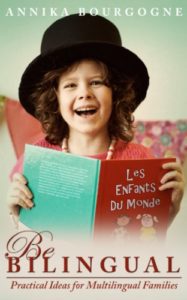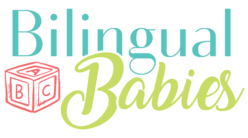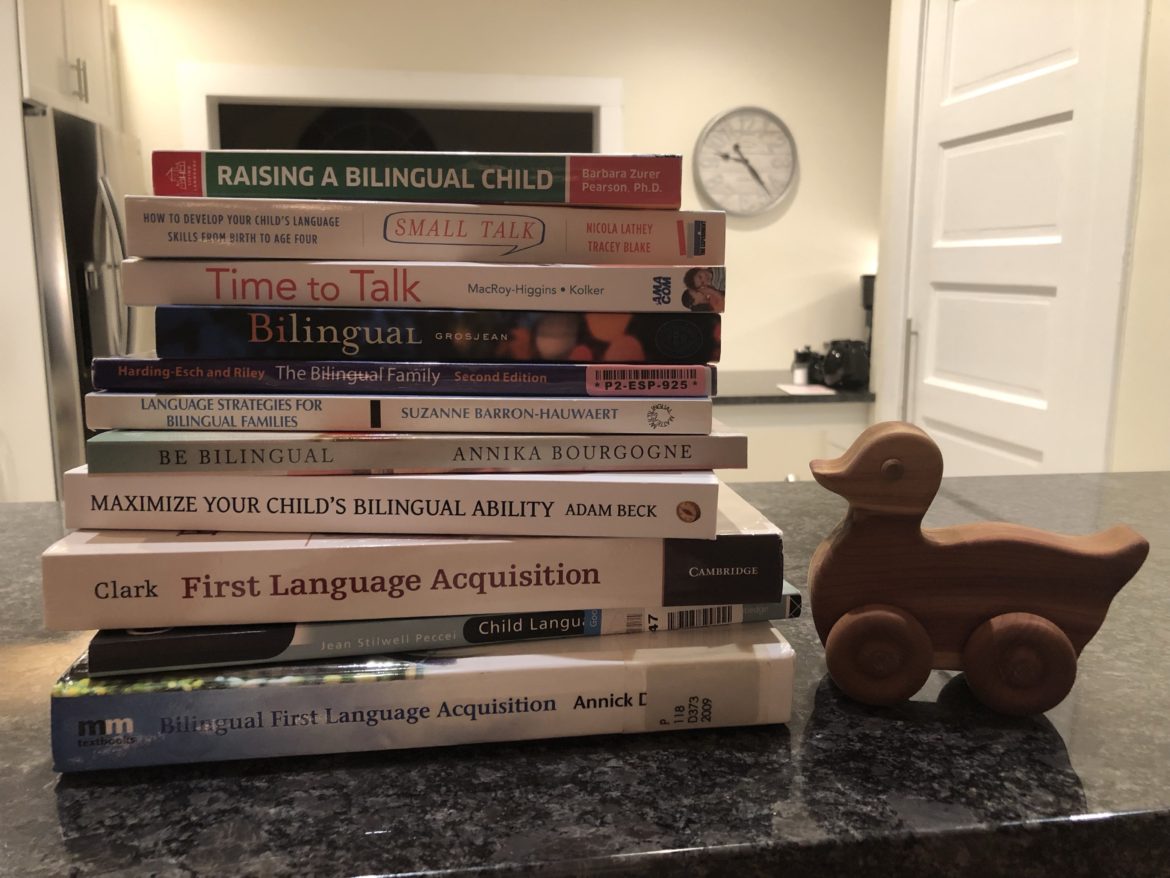Here are two more recommendations for books that look at the topic of bilingualism from two very different angles. The first one provides more knowledge about bilingualism, the second has a stronger focus on practical tips, ideas, and resources.
The bilingual family: A handbook for parents

The bilingual family is a comprehensive book about the general subject of raising bilingual children. The book starts off with a discussion of ‘children and language’ before diving into the question ‘what is bilingualism?’. Also, it features a number of case studies. Throughout the book Harding-Esch and Riley maintain a focus on bilingualism in children. They do not include bilingualism in adults.
I found the book to be very well written, yet more on the academic side. It provides more of a theoretical approach and knowledge about bilingualism. As such it is a very rich resource of information about bilingualism that will help you as parents better understand certain aspects and challenges.
Overall, it is one of my favorite books on the topic—simply it provide a lot of insights. However, if you are looking for practical tips and resources, then this may not necessarily be the book you are looking for.
Be bilingual: Practical ideas for multilingual families
 Be bilingual: Practical ideas for multilingual families is the product of a master’s thesis that Annika Bourgogne wrote at the University of Helsinki. It provides a basic introduction to bilingualism which is good for readers who are new to the topic.
Be bilingual: Practical ideas for multilingual families is the product of a master’s thesis that Annika Bourgogne wrote at the University of Helsinki. It provides a basic introduction to bilingualism which is good for readers who are new to the topic.
The book begins with a very brief definition of bilingualism, followed by a review of common myths and approaches to bilingual parenting. The second part is dedicated to more practical ideas for different family situations (e.g., OPOL, mL@H). Bourgogne approaches each topic from two angles: (1) “Words from the wise” and (2) “Views from the front lines”. In “Words from the wise”, she summarizes opinions from experts. However, she does not reference research, publications, or experts very much. In “Views from the front lines”, she shares her own experiences. Overall, the book does not go into detail about bilingualism. It provides more of a light read on the topic.
However, a big plus of this book: It contains practical ideas for different people who raise children with multiple languages (e.g., a single parent, a parent who does not speak the minority language of the spouse, OPOL families etc.). Bourgogne also provides many websites and links (although some are outdated) that point you to additional resources, including books, international radio stations, TV options, computer games, summer camps, and travel opportunities.
Overall, it’s a good read for beginners on the topic of bilingualism and those that seek practical tips, ideas, and resources.

